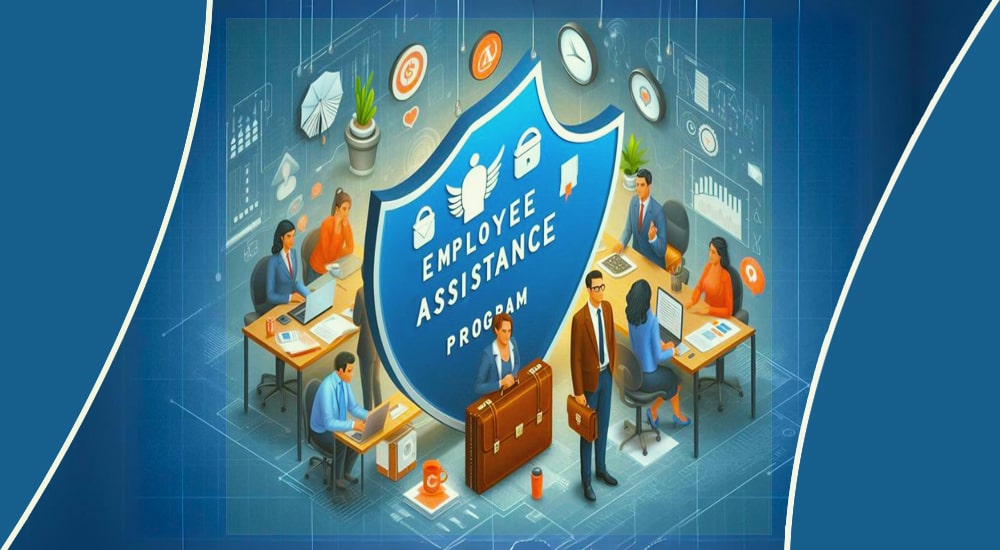
In today’s fast-paced and demanding work environment, the mental well-being of employees is more important than ever. Stress, anxiety, and personal challenges can significantly affect an employee's productivity, morale, and overall job satisfaction. To address these issues, many organizations are turning to Employee Assistance Programs (EAPs). EAP counselling is a powerful resource designed to support employees in navigating personal and work-related challenges, ultimately fostering a healthier and more productive workplace.
Understanding EAP Counselling
EAP counselling refers to professional support services provided by employers to help employees deal with a range of personal problems that may impact their job performance. These services can cover various issues, including mental health concerns, substance abuse, family or relationship problems, financial difficulties, and stress management.
One of the defining features of EAP counselling is its emphasis on confidentiality. Employees can seek help without fear of judgment or negative consequences, creating a safe space for open and honest discussions. EAP services are typically offered at no cost to employees, making them an accessible option for those seeking support.
The Importance of EAP Services
The importance of EAP services cannot be overstated. As organizations recognize the direct link between employee well-being and organizational success, the demand for effective support systems continues to grow. Here are some key reasons why EAP counselling is vital for modern workplaces:
- Enhanced Employee Well-Being: EAP counselling provides employees with the resources they need to address personal challenges, leading to improved mental health and emotional well-being. Employees are more inclined to interact favorably with their work and coworkers when they feel supported.
- Increased Productivity: By addressing mental health issues and personal challenges, EAP services help employees regain focus and motivation. This enhanced productivity can lead to improved performance and overall organizational success.
- Reduced Absenteeism: EAP counselling can help employees manage stress and resolve issues before they escalate, leading to reduced absenteeism. This benefits both the employee and the organization by maintaining workflow continuity and team dynamics.
- Stronger Workplace Culture: Organizations that prioritize EAP services demonstrate a commitment to employee well-being. This dedication creates a productive work environment where staff members feel appreciated and encouraged.
- Cost Savings: Investing in EAP counselling can result in long-term cost savings for organizations. By addressing mental health and personal issues early on, companies can reduce healthcare costs, lower turnover rates, and minimize productivity losses.
Identifying the Need for EAP Counselling
Recognizing when to seek EAP counselling can be challenging, especially in a busy work environment. Here are some signs that EAP services may be beneficial for you:
- Feeling Overwhelmed: If you often feel stressed or overwhelmed by your responsibilities, EAP counselling can help you develop coping strategies to manage your workload.
- Declining Job Performance: A noticeable decline in your job performance, such as difficulty concentrating or meeting deadlines, may indicate the need for support.
- Emotional Distress: If you are experiencing persistent feelings of anxiety, depression, or frustration, EAP counselling can provide the tools you need to cope with these emotions.
- Interpersonal Conflicts: Struggles in relationships with colleagues or supervisors can affect your work environment. EAP services can offer guidance to improve these dynamics.
- Substance Use Issues: If you or someone you know is struggling with substance abuse, EAP counselling can connect you with the necessary resources for recovery.
How to Access EAP Counselling
Accessing EAP counselling is usually straightforward. Most organizations provide information about their EAP services through employee handbooks, intranet sites, or HR departments. Here’s a general outline of how to access these services:
- Contact HR or EAP Coordinator: Reach out to your HR department or designated EAP coordinator to inquire about the available services and how to get started.
- Schedule an Appointment: Once you have the necessary information, you can schedule an appointment with a qualified EAP counselor. Often, you can do this online or over the phone.
- Attend Your Session: During your first session, the counselor will discuss your concerns and goals, helping you develop a plan to address your challenges.
- Follow Up: Depending on your needs, you may have follow-up sessions to continue working on your issues and track your progress.
Conclusion
The power of EAP counselling in the workplace cannot be underestimated. By providing employees with the support they need to navigate personal and work-related challenges, EAP services foster a healthier, more productive work environment. As organizations continue to prioritize employee well-being, EAP counselling will remain an essential resource for promoting mental health and enhancing overall workplace culture.
If you are feeling overwhelmed, struggling with personal challenges, or simply seeking guidance, consider exploring EAP counselling. Remember, seeking help is a sign of strength, and EAP services may be the key to unlocking a more balanced and fulfilling work life. Investing in your mental health not only benefits you but also contributes to the success of your organization.





